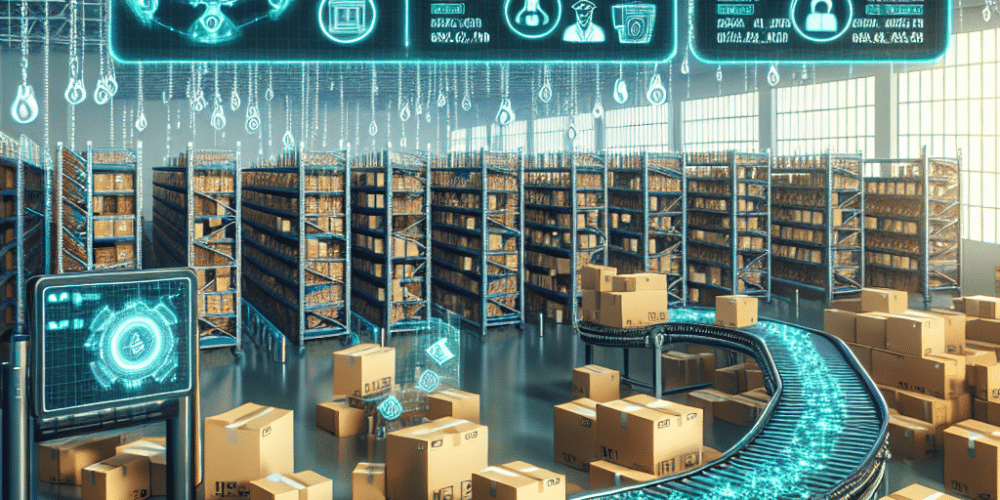In a groundbreaking development within the retail sector, several prominent global retailers have announced the adoption of blockchain technology to revolutionize their supply chain management systems. This initiative, aimed at boosting transparency and efficiency, marks a significant shift towards digital transformation in the retail industry.
The multinational retail corporation, which includes brands across various sectors such as electronics, clothing, and food products, revealed today that it would be implementing blockchain solutions to trace product journeys from manufacturing to store shelves. By leveraging blockchain’s inherent properties of decentralization and immutable record-keeping, these companies aim to enhance visibility into their supply chains, thus ensuring product authenticity and consumer trust.
The decision comes amidst growing consumer demands for greater transparency and ethical practices in the production and distribution processes. Recent surveys indicate that over 70% of consumers are willing to pay a premium for brands that offer complete transparency. In response, retailers are turning to blockchain technology, which provides a transparent and verifiable record of transactions and product origins.
How Blockchain Enhances Supply Chain Management
Blockchain technology offers a peer-to-peer network where each transaction in the supply chain can be recorded and verified by all parties involved. This not only prevents tampering and fraud but also allows for real-time tracking of goods. For example, in the food industry, blockchain can be used to track the journey of a product from farm to table, providing information on when and where food was harvested, processed, and stored.
This technology also benefits retailers by streamlining operations and reducing costs associated with supply chain management. Automated smart contracts, a feature of blockchain, can trigger actions on achieving certain conditions, such as releasing payments only when goods are delivered, thereby decreasing the time and costs related to manual processing and verification.
Environmental Impact and Ethical Sourcing
Another significant aspect of blockchain implementation in retail supply chains is its potential to improve sustainability practices. By providing transparent data, blockchain helps companies monitor and verify their environmental impact and adherence to ethical sourcing standards. This is increasingly important as both regulators and consumers demand greater accountability for environmental sustainability.
Moreover, blockchain enables better management of recalls and returns, which are often challenging and costly for retailers. With precise tracking, goods can be quickly located and removed from shelves, minimizing the risk of keeping defective or harmful products in the market.
Challenges and Future Prospects
While the integration of blockchain into supply chains is a promising development, it is not without challenges. The adoption requires significant upfront investment and changes to existing systems. There is also the need for establishing a common set of standards and interoperability among different blockchain systems used by various stakeholders in the supply chain.
Despite these hurdles, the future looks optimistic. Analysts predict that by the end of the decade, the majority of global retailers will have incorporated some form of blockchain technology into their supply chain management practices. This adoption is expected to foster a new era of transparency, efficiency, and trust in retail supply chains.
In conclusion, the announcement by leading retailers to adopt blockchain for supply chain management is a significant step towards modernizing retail operations and meeting the new-age consumers’ demands. As this technology continues to evolve and more companies come on board, the retail sector could witness unprecedented levels of transparency and efficiency, setting a new standard in the global market.



